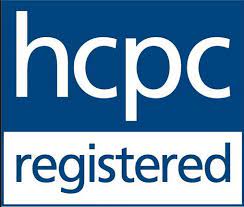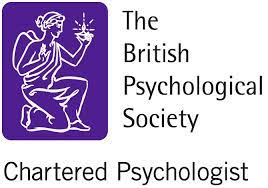How To Cope With Tiredness and Exhaustion Following Stroke
I’m so exhausted! Tiredness following stroke: Learn ways to manage post-stroke fatigue using some simple yet effective strategies.
Paul* suffered a stroke 18 months ago and his world turned upside down. He, like a lot of stroke survivors, noticed changes in his ability to adjust to physical disability, to think clearly, and to cope with his feelings after his stroke. But most upsetting for Paul, was that he no longer had enough energy to play with his grandchildren, to help his wife with the weekly shopping, and to even manage a shower without feeling wiped out for the rest of the day. It was as if a cloud of heaviness was constantly over him.
Paul was struggling with post-stroke fatigue (extreme tiredness following stroke). It is a debilitating (often THE most debilitating) physical effect of stroke and other types of brain injury. And just like with Paul, friends and family often struggle to truly understand this hidden disability. Paul’s friends and family cared about him and would encourage him to do things, but unfortunately this would lead to him criticising himself when he struggled due to the tiredness. Paul felt deflated when he could not complete the tasks or when he, yet again, turned down another social invitation due to feeling exhausted. Occasionally, this would lead to irritability and frustration at both himself and others.
Paul looked for help to stop him feeling so tired and exhausted. The following steps helped him feel more in control of his energy levels.
1. Identify your personal triggers for tiredness
Everyone has very different triggers that have a greater drain on their energy levels. Triggers may include seeing friends, shopping or travelling. Activities can be split into three different types of energy requirements: physical, mental and emotional energy. For example, you may notice that some activities may deplete your mental energy (e.g., reading) but not your physical energy (e.g., walking the dog). Take time to notice and write down your own personal triggers, and what type of energy these particular activities require and are depleting within yourself. This will allow you to start planning and pacing these activities throughout your day.
2. Monitoring your energy levels
The next step is to look at your energy levels closely. If you think of your energy levels as a finite resource (like petrol in a petrol tank), monitoring allows you to be much more aware of the ‘petrol gauge’ and to adapt your behaviour accordingly. You wouldn’t attempt to drive a 200-mile journey if you only had a quarter tank of petrol left. Paul monitored his thoughts, feelings, sensations and behaviour and found that he would often miss some of the more subtle cues that his ‘tank’ was becoming depleted. For example, he noticed that he would make more mistakes when his energy levels were depleting and he was able to put a plan in place for ‘refuelling’ before he ran out of energy completely.
3. Pacing
Once you are more aware of your tiredness triggers and you are paying close attention to your energy level gauge, pacing is an essential step to help manage your fatigue. Through monitoring and paying attention to his own personal triggers, Paul noticed a ‘boom and bust’ cycle. He noticed that he was more energised on some days and, understandably, would want to complete as many tasks as possible whilst he felt good. However, this would lead to him depleting his ‘tank’ significantly, requiring a longer period to ‘refuel’ over the next few days. To break this ‘boom and bust’ cycle, Paul worked on having regular breaks within his day and between activities. He was more aware of which activities depleted his energy and used a diary to plan these activities around regular rest times and activities that were less demanding. Due to some memory difficulties following his stroke, Paul also used alarms on his phone to give himself a reminder to stop an activity and take a break.
4. Recharging Energy Levels
Not everyone ‘recharges their batteries’ or ‘refuels their tank’ using the same strategies and so spending some time noticing what strategies work for you will be helpful. Paul was able to use relaxation strategies to help manage his energy levels. Other people may find listening to music, sitting or walking in the fresh air or practising mindfulness meditation helpful. It may also be helpful to consider switching to a different type of activity, such as changing from a physical activity to a mental activity, or vice versa. Remember to pay close attention to your energy ‘gauge’ and think about ‘refuelling’ if you identify that you are down to ‘half tank’.
5. Strategies to Reduce Mental Effort
There are a number of strategies to help reduce the mental effort required by certain task and activities. Focusing on one task at a time and using memory aids (e.g., calendars, planners, checklists) can reduce the cognitive load (mental effort) required for certain tasks. Managing your environment to reduce the mental effort required will also be important. For example, Paul identified that it was helpful to turn off the TV or radio when he was attempting to concentrate on a mentally demanding activity. He also organised his office space so that he did not expend unnecessary energy attempting to find things in a cluttered room.
6. Addressing Other Factors
Many other factors can play a part in post-stroke fatigue, including sleep difficulties, exercise and nutrition. All three of these are important in managing our energy levels generally, but all three can be significantly impacted during a lengthy hospital stay following stroke. Ensuring good sleep hygiene, sufficient exercise and nutrition will be helpful in managing your current energy levels. You may feel as though you can independently plan these into your week already, but there are supported exercise programmes and nutritional support available within NHS services should you require support with these. Please discuss with your GP or Stroke Team for further information.
Next Steps
Paul was able to make some great progress in managing his tiredness and fatigue and was able to feel much more in control of his energy levels. However, it is important to acknowledge that following stroke your brain is still healing and whilst we cannot stop this process and the resultant fatigue, you can learn to manage the fatigue and boost your energy levels whilst this process happens. It will also be worthwhile discussing your fatigue with your GP to rule out any endocrine functioning difficulties, sleep disorders, medication interactions, pain and other factors. They may also discuss with you whether a referral to a local community neurorehabilitation / stroke service may be helpful. Further information on how to cope with post-stroke fatigue can be found via the Stroke Association UK website. If you would like further independent support with post-stroke fatigue, I also offer online therapy sessions that may be helpful for you. Please find more information on my website.
*Paul is an amalgamation of a number of stroke survivors presenting with post-stroke fatigue
Dr. Jennifer Vaughan
Chartered Clinical Psychologist
07391 306 296
jennifer.vaughan4@protonmail.com
Website designed and built by Lou P Creative


